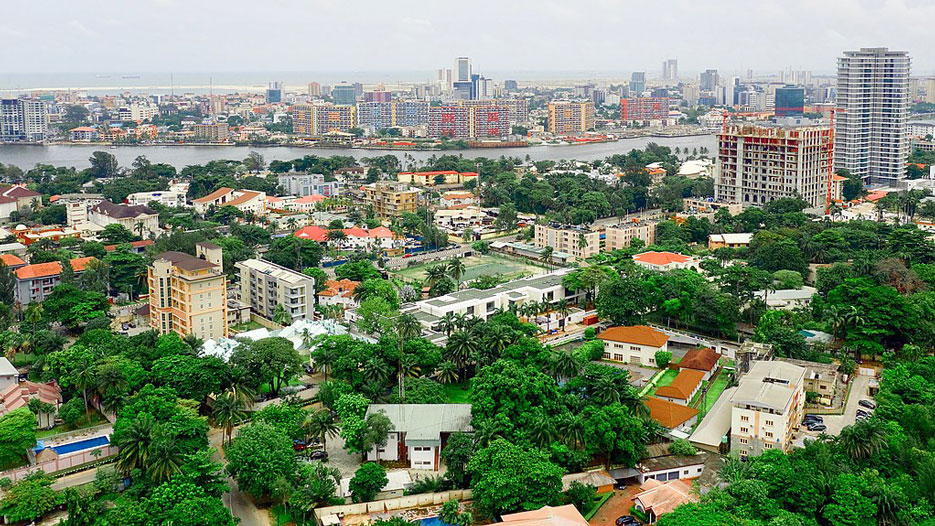Nigeria: Exploring Africa’s Largest Economy – Challenges, Opportunities and Prospects

Nigeria holds the title of Africa’s largest economy. Its dynamic and diverse economic landscape is shaped by its rich natural resources, youthful population, and strategic global position. However, alongside these opportunities lie significant challenges that Nigeria must navigate. This article delves into the historical context, current economic structure, pressing challenges, and promising opportunities that define Nigeria’s economic journey.
Nigeria, Africa’s most populous country, boasts a dynamic and diverse economy. As the largest economy on the continent, it plays a crucial role in shaping Africa’s economic landscape. Despite significant challenges, Nigeria’s economic potential remains substantial, driven by its abundant natural resources, a young and growing population, and a strategic position in the global economy.
Historical Context
Nigeria’s economic journey has been marked by periods of robust growth and challenging downturns. Since gaining independence from British colonial rule in 1960, Nigeria’s economy has undergone significant transformations. The discovery of oil in the late 1950s shifted the country from an agrarian economy to one heavily dependent on petroleum. By the 1970s, oil had become the cornerstone of Nigeria’s economy, contributing the majority of government revenues and foreign exchange earnings.
Economic Structure
The Nigerian economy is characterized by three main sectors: oil and gas, agriculture, and services.
The oil and gas sector is pivotal, making Nigeria one of the world’s top oil producers with the largest natural gas reserves in Africa. This sector accounts for about 10% of Nigeria’s GDP but generates more than 90% of export earnings and over half of government revenues. However, the sector’s dominance makes the economy highly vulnerable to fluctuations in global oil prices.
Agriculture remains a critical sector despite the prominence of oil, employing over 70% of the workforce and contributing around 22% of GDP. Nigeria is a leading producer of several agricultural products, including cassava, yams, and palm oil. However, the sector faces challenges such as outdated farming techniques, inadequate infrastructure, and limited access to financing.
The services sector has seen substantial growth, driven by telecommunications, banking, and retail. Lagos, Nigeria’s largest city, serves as a major financial hub for the region. The burgeoning tech industry, often referred to as “Silicon Lagoon,” is also gaining international attention, with Lagos being a hotspot for startups and innovation.
Current Economic Challenges
Nigeria’s economy faces several critical challenges.
Heavy reliance on oil exports makes the economy susceptible to global oil price volatility. Efforts to diversify the economy have had limited success, leaving the country exposed to external shocks.
Persistent inflation, often in double digits, erodes purchasing power and savings. Currency volatility, exacerbated by fluctuating oil revenues and inconsistent monetary policies, has also created an uncertain business environment.
High unemployment rates, particularly among the youth, pose significant social and economic risks. Nearly half of Nigeria’s population lives below the poverty line, and addressing this requires substantial job creation and poverty alleviation measures.
Inadequate infrastructure, particularly in power supply, transportation, and healthcare, hampers economic growth and development. Frequent power outages and poor road networks increase the cost of doing business and reduce productivity.
Corruption and weak governance have long plagued Nigeria, affecting all sectors of the economy. Efforts to tackle corruption have met with mixed results, and the need for improved transparency and accountability remains urgent.
Opportunities and Future Prospects
Despite these challenges, Nigeria’s economy holds considerable promise.
There is a strong push towards economic diversification, with the government promoting non-oil sectors such as agriculture, mining, and manufacturing. Diversification is critical to building a more resilient economy.
With a median age of around 18 years, Nigeria has a youthful and rapidly growing population. This demographic dividend, if harnessed through education and job creation, could drive significant economic growth.
Nigeria’s tech sector is booming, with increasing investment in fintech, e-commerce, and digital services. The growth of mobile technology and internet penetration offers vast opportunities for innovation and entrepreneurship.
Nigeria is a key player in the African Continental Free Trade Area (AfCFTA), which aims to create a single market for goods and services across the continent. This could boost intra-African trade and open new markets for Nigerian businesses.
Beyond oil, Nigeria has abundant natural resources, including minerals and arable land. Sustainable exploitation and management of these resources could significantly contribute to economic development.
Final Thoughts
Nigeria’s economic landscape is a blend of significant challenges and vast opportunities. The country’s ability to navigate its economic hurdles, particularly through diversification, infrastructure development, and governance reforms, will determine its trajectory in the coming years. With strategic investments and effective policy implementation, Nigeria has the potential to unlock substantial economic growth and improve the living standards of its citizens. As Africa’s giant, Nigeria’s economic fortunes are closely watched, and its progress will undoubtedly influence the broader African economy.
FAIR USE POLICY
This material (including media content) may not be published, broadcasted, rewritten, or redistributed. However, linking directly to the page (including the source, i.e. Marcopolis.net) is permitted and encouraged.